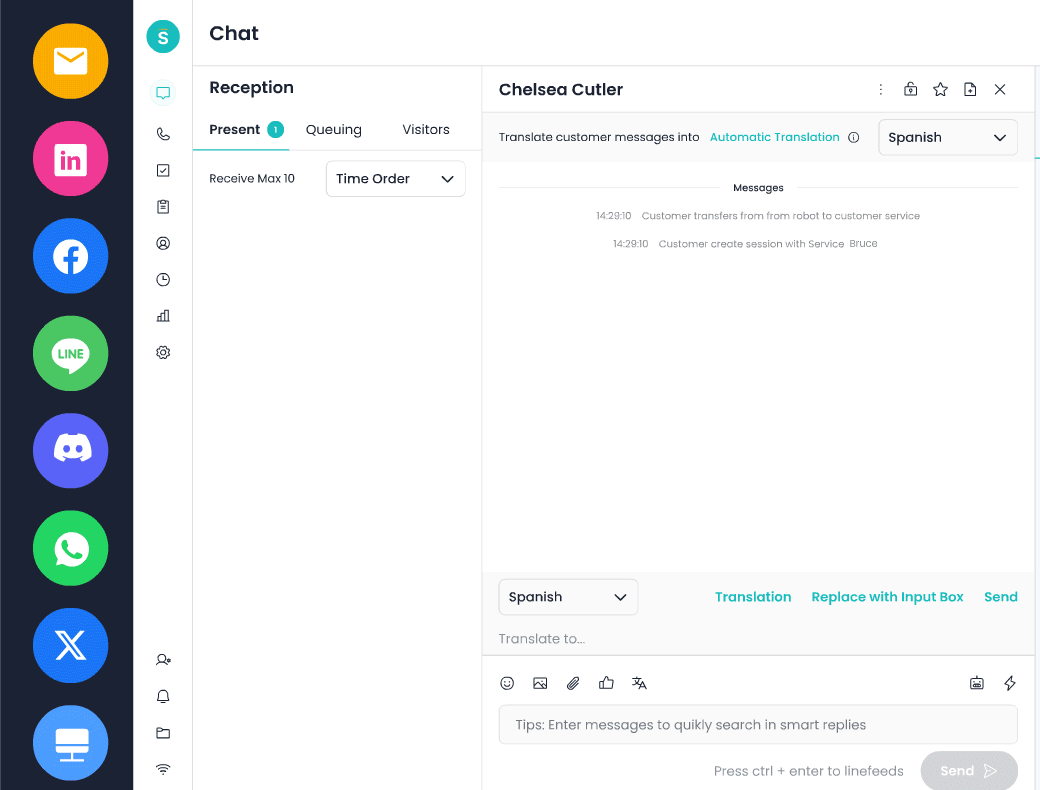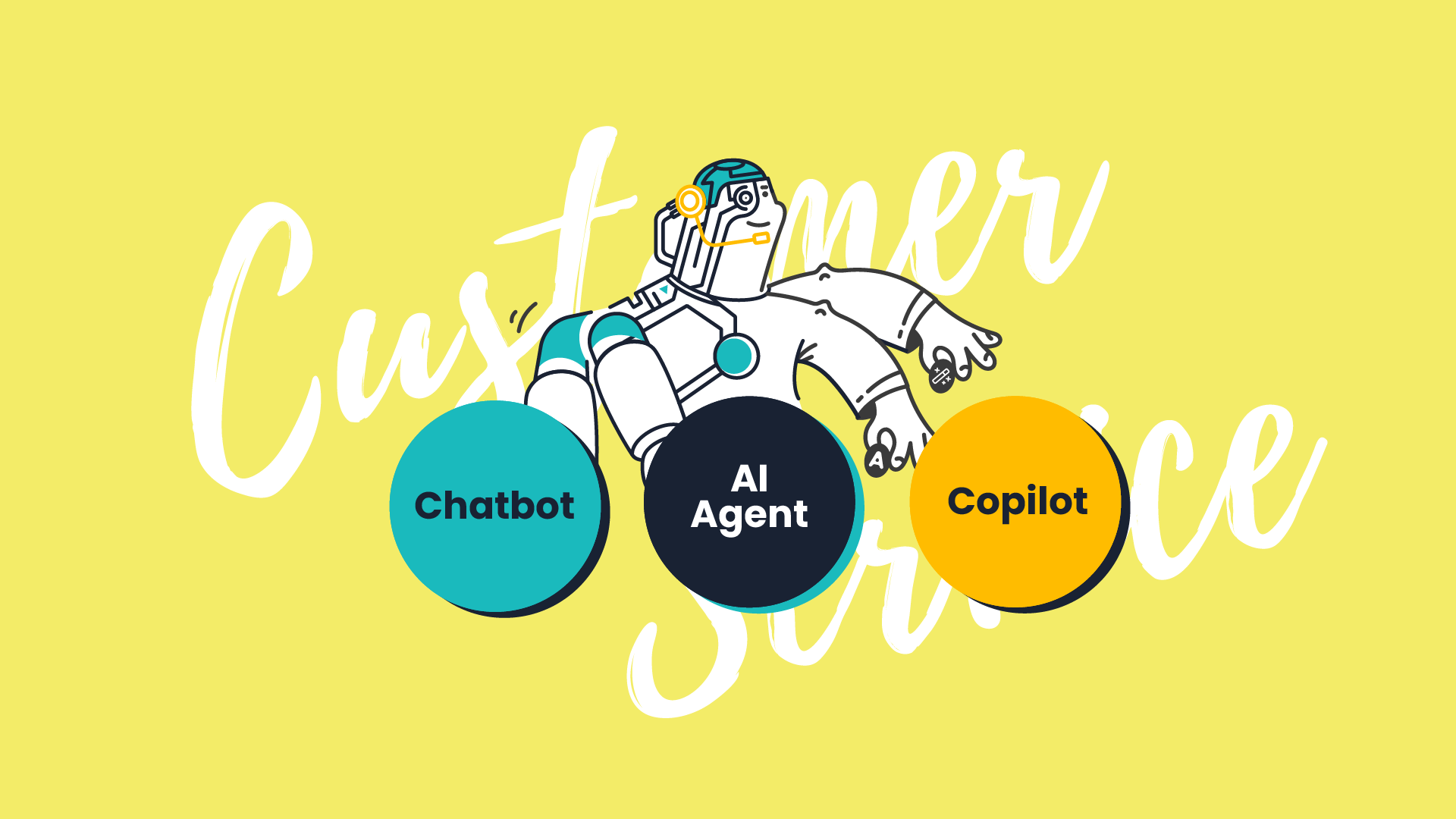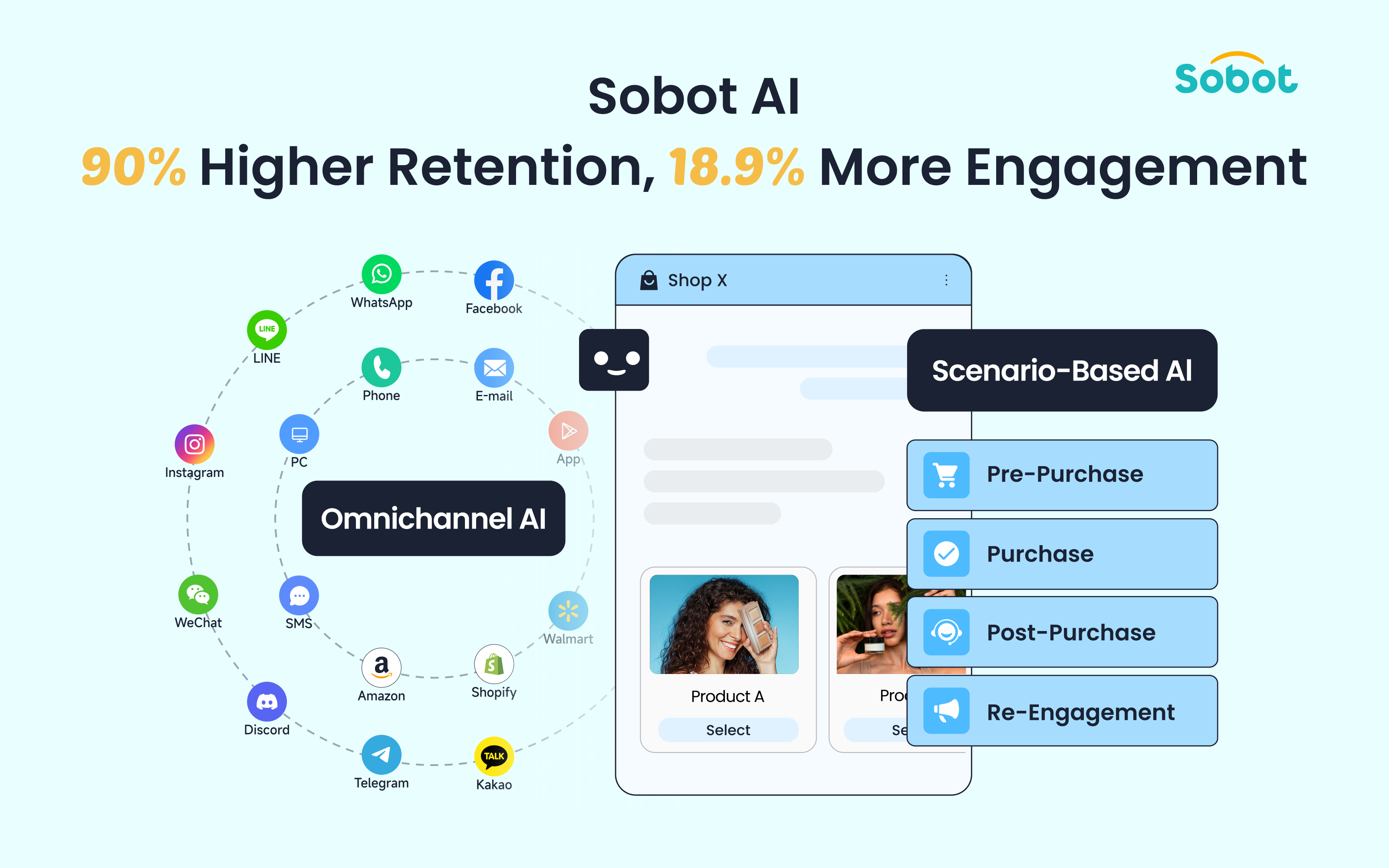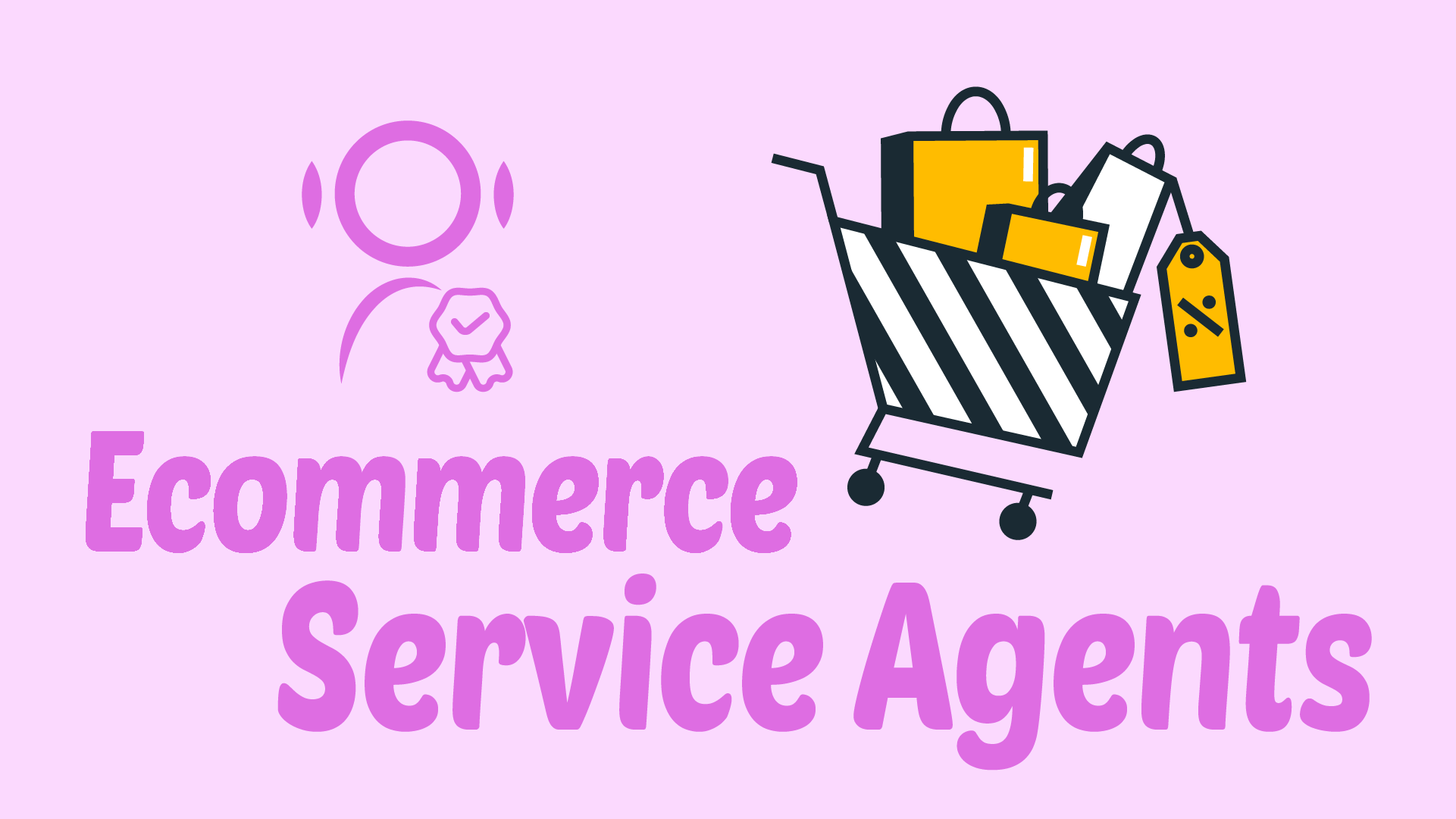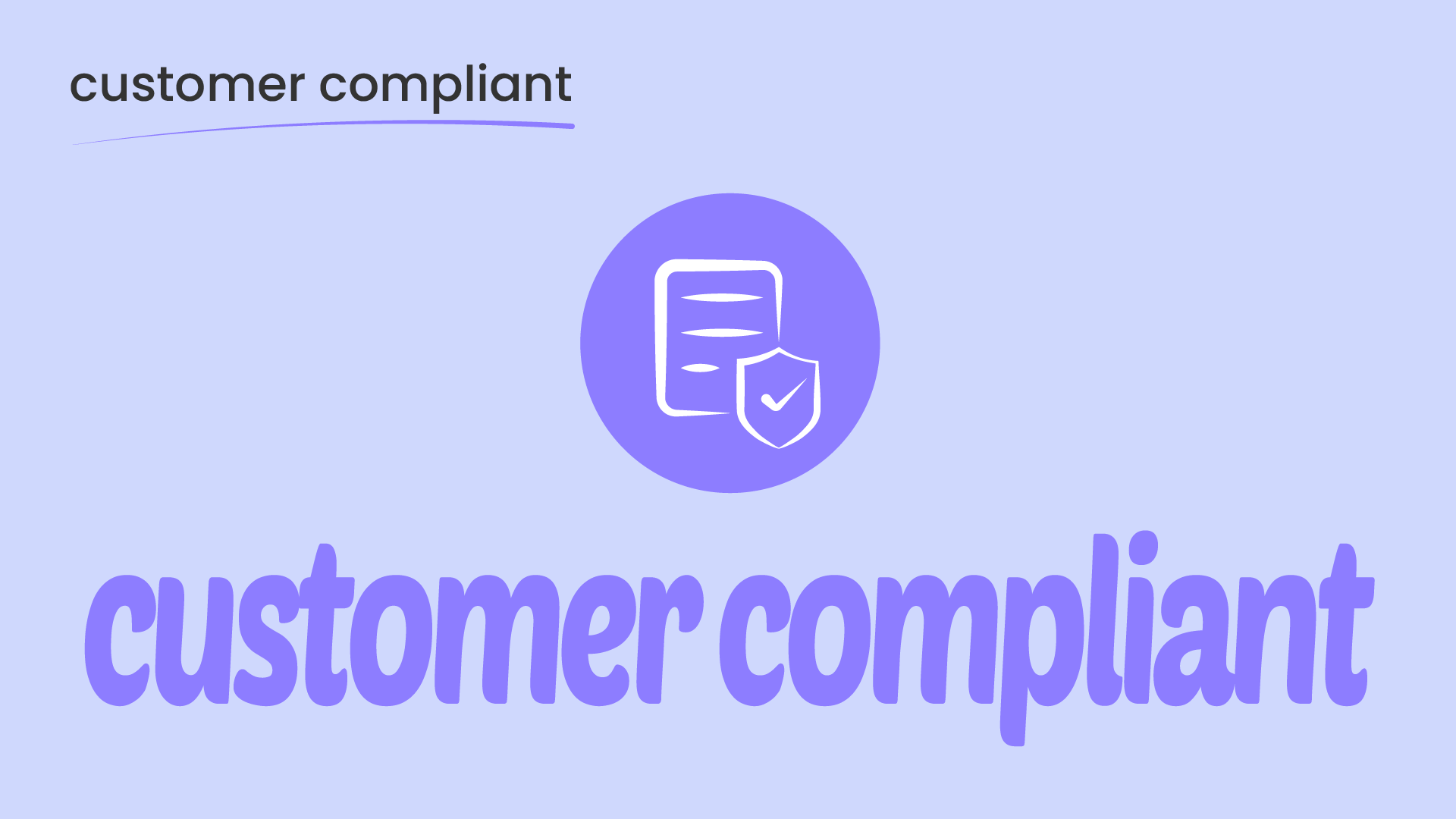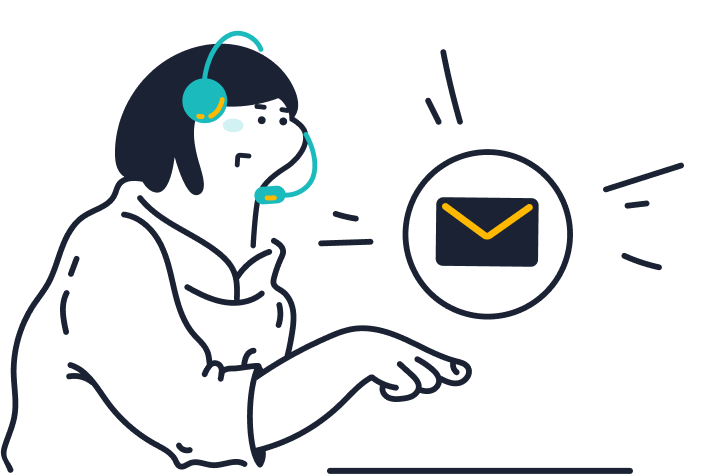AI’s role in customer service is phenomenal, changing how businesses interact with customers. From chatbots, AI agents, and copilots to other technologies, it has managed to move customer contact and service into new and efficient levels of personalization and scalability. This has been precipitated by a need for business enterprises to remain competitive in the face of globalization in the hyper-connected world.
One main reason businesses adopt AI in customer service is the growing volume of customer interactions. Customers want immediacy and accuracy, so traditional customer service methods cannot meet these demands. AI solves this by automating routine tasks and providing intelligent support. The blog will differentiate chatbots, AI agents, and copilots, their applications in customer service, and the future trends that will shape this industry.
Comparison Among Chatbot, AI Agent and Copilot
Chatbot
Chatbots are AI-driven programs that are human-conversational. Most of their applications are for customer engagement on a website, a messaging app, or a social media app. There are two basic types of chatbots: rule-driven and AI-driven. Rule-based chatbots are simple scripts with no sophisticated logic and will hence respond to only fundamental transactions. On the other hand, AI-driven chatbots handle more sophisticated NLP inputs from the user during conversations.
Some of the more popular ones include Amazon’s Alexa, Apple’s Siri, and Google Assistant. In a customer service capacity, there are companies like Domino’s, which receives food orders with the help of these chatbots, and Sephora’s chatbot, which helps consumers make selections of beauty products. But they are also used internally for HR queries or IT support. For example, Facebook Messenger’s chatbot will guide you in doing many different things and give suggestions.
A Gartner report stated that virtual assistants or chatbots using AI will power more than 25% of customer services by 2027.
This speaks volumes about the power of chatbots since they have been known to reduce customer service costs by up to 30% while increasing response times and maximizing customer satisfaction rates. The same report projects that businesses using chatbots can improve customer service efficiency by 3x. A study by Salesforce estimated that 64% of consumers prefer to use chatbots for fast interaction and that they function 24/7.
AI Agent
Indeed, AI agents are much more developed than chatbots because they can understand highly sophisticated language, process it, learn from experiences, and give even more personalized responses. A chatbot will never cross its limits. In contrast to the chatbot, an AI agent can assist in a much broader functionality scale in multiple ways, making a relatively complex use in customer service feasible.
Advanced NLP methods provide the capacity for gaining context and intention embedded in the customer’s questions, leading to more nuanced and on-point responses. They can look through massive amounts of data to find patterns, from which they can make predictions, help anticipate customer requirements, and give proactive support when solving their problems. Many businesses rely on an AI agent development company to build these advanced solutions, ensuring seamless integration and optimized performance. This is very beneficial when complex queries require a better understanding of the customer’s scenario.
AI agents come into play more and more in domains where it is a matter of understanding customer problems, such as technical support, troubleshooting, or retention strategies. For example, telecommunication companies utilize AI agents to support case resolutions about network connectivity problems or customer billing concerns. The banking sector harnesses such technology for fraud detection and personal financial advisory services. Such technology is also used in health to manage appointment scheduling and give general advice on health conditions based on symptoms.
Copilot
Copilots are intelligent tools meant to guide people with insights, suggestions, and automation of complicated tasks. They reinforce the human agent’s prowess and assure that customers receive the best experience through service.
These could empower human agents to make concise decisions, with the AI copilot processing vast real-time information to make recommendations based on historical data, current trends, and predictive analytics.
AI copilots are deployed across a wide range of operations where the discretion of human judgment holds weight. For example, in health care, AI copilots support doctors in analysis to help draw inferences on probable diagnoses or treatment plans of patients. In customer service, AI copilots support the work of agents with relevant information during interactions, such as customer history, sentiment analysis, or product recommendations. The real-time support provided makes it easier for agents to offer accurate and personalized service.
There have been tremendous productivity and efficiency improvements resulting from AI copilot integration. AI copilots collapse complex tasks into fast, responsive assistance that can help improve service outcomes by maximizing human agents’ effectiveness.
The below table compares chatbot with AI Agent and Copilot
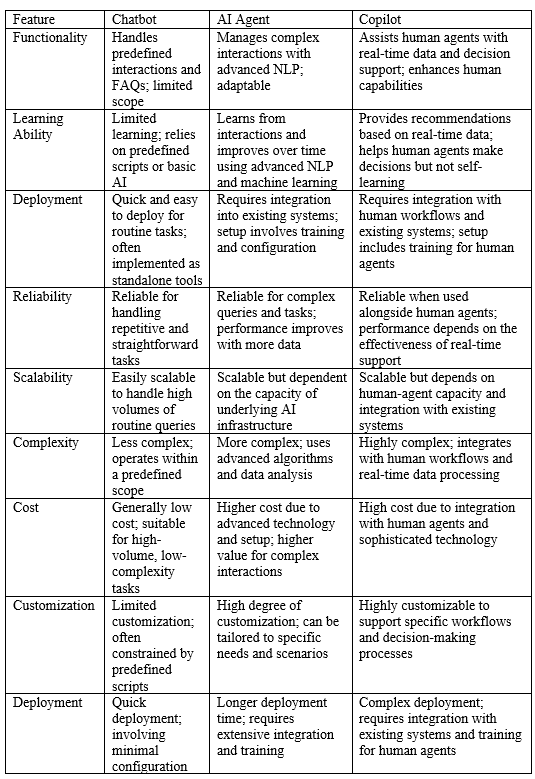
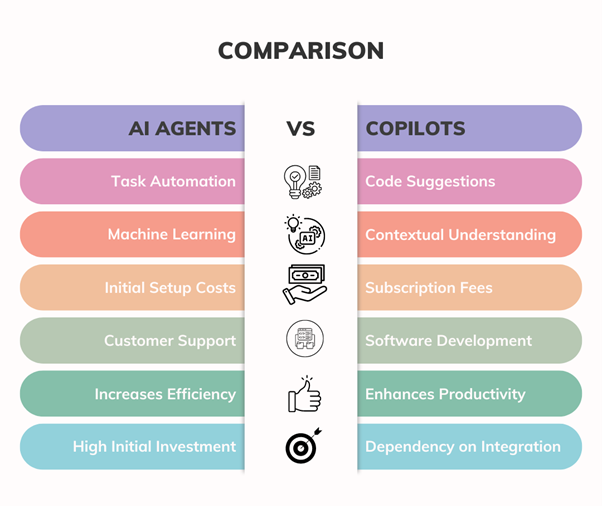
The above figure provides a pictorial comparison between AI Agent and Copilot
Use Cases of AI in Customer Service of Some Brands
AirHelp: Extending Customer Service with AI-driven Claims Processing
This organization guides travelers in processing refunds in case of flight disruptions. AirHelp has integrated AI into its operations, where, with the help of AI, more than 16 million customers were assisted, and the average response time was decreased by 65% through the processing of claims. The AI system can deal efficiently with huge claims volumes, give customers real-time updates regarding their claims, and ensure accurate compensation. Due to this efficiency, customer satisfaction increased, and the company’s reputation was boosted.
Eye-OO: Cranking up E-commerce Sales with Personalization of Customer Experience
Using AI to personalize customers’ experiences brought about a 25% increase in sales at Eye-OO. The system can analyze the purchase history and the customer’s preferences, giving suggestions that the customer will likely buy, thus increasing sales and enhancing customer loyalty. These AI-powered suggestions will more likely grab attention, indicating something more relevant and creating targeted promotions for customer interest.
H&M: Reshaping Customer Support with the Help of AI-Powered Agents
If AI agents are to be included in the customer services processes of H&M, the processing time will be reduced by approximately 70%. AI agents answer any customer query on their orders’ location, returns, and product supply condition. Lowered response time implies a seamless and hassle-free customer buying journey.
Bella Santé: Boosting Sales with AI-personalized Marketing Campaigns
Bella Santé, a luxury spa chain, increased sales by $66,000 through customer data analysis. The AI system crafts relevant and personalized offers and promotions to engage the right customer at precisely the right time. Given this effectiveness in driving revenue and enhancing customer experience, Bella Santé has been creating more sales and bringing in the most relevant personalized offers.
Endeksa: Building efficiency in real estate lead generation with AI-powered insights
Endeksa is a provider of real estate data that uses artificial intelligence in the systematization of lead generation, hitting increased leads by 138%. The firm also scrapes market data and customers’ behavior to search for probable leads and send them the right messages. With the massive increase in leads that Endeksa enjoys, the business stands a better chance of engaging potential customers and making more sales.
Impact of AI on Customer Service
AI in live chat and virtual assistants enhances the efficiency of customer interaction and demonstrates better service quality.
With a customer profile in place, AI solutions can recommend and tailor products to the customer, find relevant information, and make appropriate marketing pitches for the customer. Personalization dramatically boosts customer satisfaction and drives engagement because the offers and support apply to the interests and needs of each customer. AI is also brilliant in cases of repetition; it does its bit when repetitive questions and tasks are involved. It can make insights based on the existing customer data and infer fine-grained insights related to their behavior and preferences from the available customer data.
AI will fuel operational efficiency, and operations will become more personalized. By processing feedback with the help of AI, companies can produce prescriptive insight. This insight is needed for further decisions to develop something new in the cruise of products and services. AI-powered sentiment analysis tools can detect consumer sentiment against interactions. They will detect positive, negative, or neutral sentiments using NLP algorithms businesses to measure customer satisfaction and change strategies. The figure below illustrates how an organization’s AI-enabled customer service systems can function.
Future Trends and Technological Developments
AI in customer service looks bright in the future, as estimates claim that by 2025, it will be doing as much as 95% of customer interactions, driven by betterment in technology and demand from the rising need for effective service. This progress towards more personalized experiences with every passing day is inevitable, as AI systems within digital technology have been integrated with more and more competency into service operations. More changes in how customer service is supposed to work may be thought about with the help of technology such as AR or voice assistants.
AR may provide customers with the most engaging experiences by overlaying digital information in the real world. On the other hand, developments in voice recognition technology raise the bar on what virtual assistants can achieve. This technology will further expand what AI performs within the domain of customer service and provide new ways of interacting with customers—thus redefining the design of service delivery. That is why it is so vital that AI models are unbiased, do not lead to discrimination, and therefore can be trusted.
Another way AI innovates customer service is by offering new ways for companies to drive interactional excellence, enhance operational efficiency, and drive growth. The technologies of AI, from chatbots and AI agents to copilots, are on the verge of changing how businesses operate their service operations. The more technology advances, the more central AI becomes in customer service strategies via the delivery of practical and personalized solutions that can meet the changing expectations of customers.
Companies should consider the ethical dimensions of such solutions and make sure AI is responsibly and transparently deployed. Turning to AI and knowing new trends makes a company successful in the digital world through best-in-class customer experiences, driving long-term growth.
Sobot: Artificial Intelligence in Customer Service Solutions
Sobot is pioneering an AI-driven platform of customer service solutions into a new way enterprise talks with their customers. Drawing on state-of-the-art NLP and machine learning technologies, Sobot delivers personalized and timely customer support, adapting to every changing customer need. Its intelligent automation makes any organization more capable of smoothing everyday operations efficiently, helping organizations ensure high customer satisfaction with reduced operational costs. Sobot makes every interaction efficient and effective.
Sobot is agile, scalable, and versatile enough for various industries and companies of any size. The user-friendly design and practical analytic tools make it easy to integrate Sobot into a company’s operations. This helps businesses follow up on performance and understand consumer behavior to fine-tune service strategies. The potential of integrating Sobot into corporate customer service keeps it miles ahead of the competition and shifts toward world-class customer experiences that engender loyalty and growth.
(The information in the article is collected from public channels. If the data or pictures are infringing or inaccurate, please contact us to delete or modify it.)
